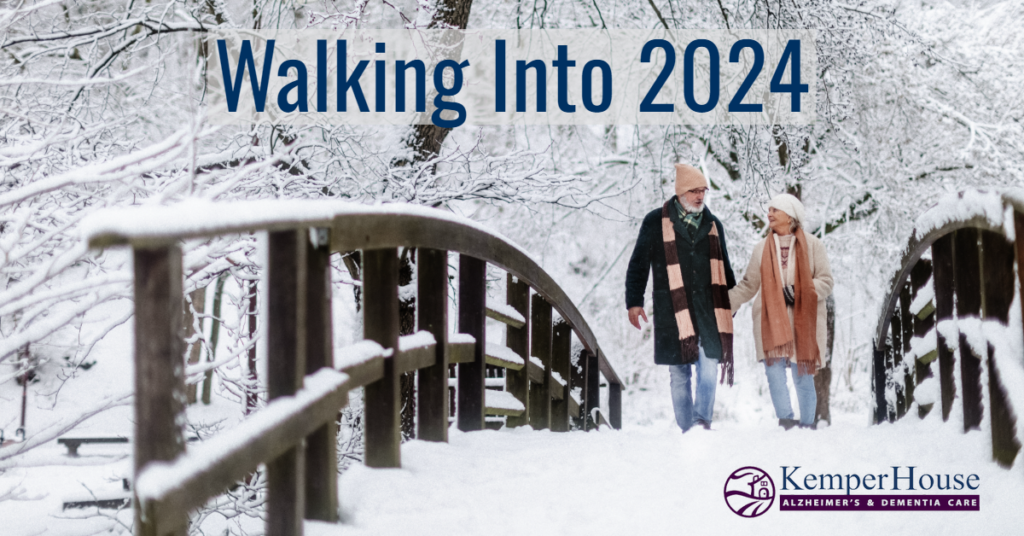
Walking Into 2024
Every year around this time, some of our residents, families, and Kemper Krew are busy taking stock of the year that just ended and are making new lists of resolutions for the new year. Perhaps exercising more often is at the top of your resolution list? How about walking into 2024… literally! A good, brisk walk is one of nature’s best exercises because it benefits numerous muscles while supplying the brain with oxygen, boosting energy levels, and enhancing mood and cognitive function. This holds particular significance for those living with dementia.
Like most people, a person with dementia may want to spend more time walking. Walking is good exercise and can help relieve stress and boredom. Alzheimer’s and various dementia types can impact individuals’ balance and mobility. Struggling to gauge distances, like judging the height of a curb, can leave people fearful of walking, despite being physically capable.
Engaging in physical activity and enjoying the outdoors can uplift spirits, potentially improving appetite and sleep. Walking provides an excellent opportunity for family, volunteers, or caregivers to spend quality time with someone and foster deeper connections with a person living with dementia.
Sometimes, conversation or quiet reflection feels more natural while in motion and appreciating the surroundings. However, it’s crucial to prepare for walks by ensuring the person is ready, having checked if they need to use the restroom and are appropriately dressed for the weather. Here are some additional pointers to make the most of your walks:
– Be prepared: Carry essential items like keys, water, an extra sweater, and a phone in a fanny pack or small backpack. Ensure the person you’re walking with has their necessary belongings, such as glasses, hearing aids, or walking aids.
– Choose the route wisely: Opt for paths that don’t involve crossing busy streets or lacking sidewalks. Walking near a playground or park is often enjoyable.
– Take it easy: Focus less on your walking speed and take time to appreciate the weather, trees, and people you encounter.
– Stay attentive: Look out for signs of increased unsteadiness, fatigue, or distress in the person you’re walking with. Walking a familiar route for a shorter duration, especially initially, is advisable. Remember that curbs and cracks in the sidewalk can pose hazards for someone who might not be aware of them.
– Seek assistance when needed: Encourage the person to hold your arm for added stability on uneven paths. If concerned about a potential fall, find a place to sit and seek help by calling someone to pick you up or to provide assistance.
As we walk into 2024, consider making walking part of your daily routine. The more you walk, the more likely you are to see and feel improvements. Your brain and body will thank you for it! Happy New Year from all of us at Kemper House!


